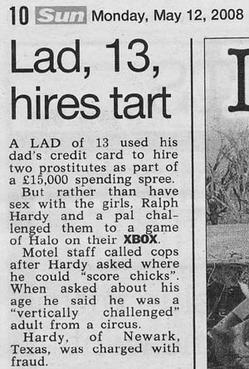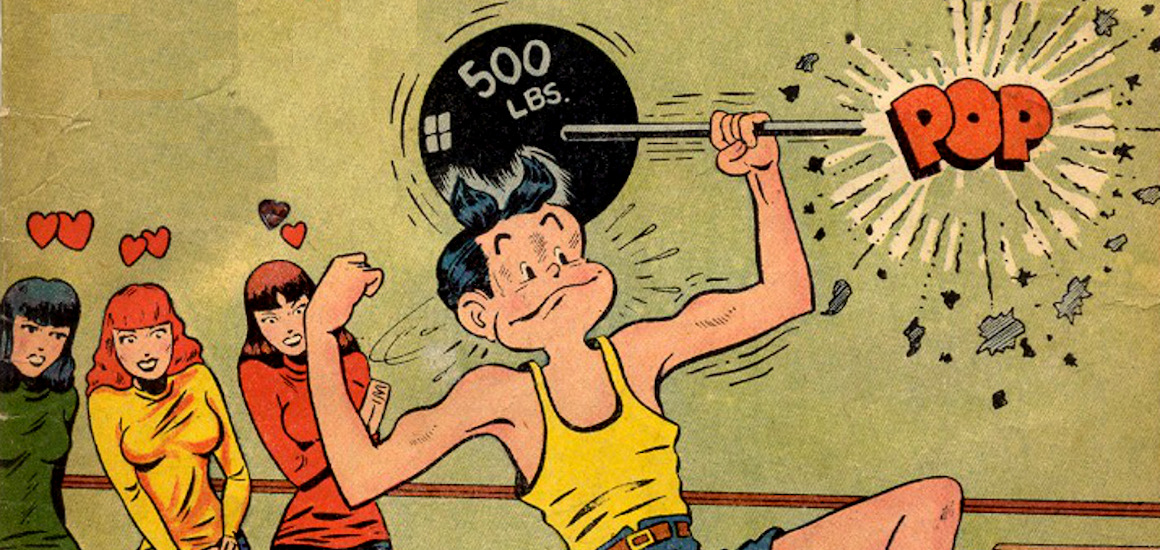
Good linkbait is the holy grail of online marketing. The right post or web article can spread through social media sites, or sometimes mainstream news sites, to point potentially hundreds of valuable links back to you.
But what is the “right” article and is it “anything goes” to create a story that captures the web?
Online marketer Lyndon Antcliff recently helped a client achieve more than 1,500 inbound links in under a week with a story designed to grab attention.
The article – 13 Year Old Steals Dad’s Credit Card to Buy Hookers – appeared on money.co.uk as part of Lyndon’s linkbaiting campaign, and it was certainly successful.
The story soon appeared around the world. Digg users pumped it up to 2452 diggs, driving tons of traffic to the page. Then news outlets leapt on the story of an American teen behaving badly.
In Australia, News.com.au, The Daily Telegraph and others covered the story (since deleted), driving hundreds of links back to the original article.

In the UK, best-selling newspaper The Sun published the story in their pages. While in the states, Fox News aired the story, later spread wide through YouTube.
But the whole article was fiction.
Tricking the Media
On announcing the hoax on his own website, Antcliff was both buoyed by congratulations and surprised at the criticisms, as online marketers rapidly split into two camps over whether such practices could have serious repercussions for the industry.
If producing highly successful linkbait requires nothing more than fabricating a salacious news story, then online marketing presents a serious danger to the integrity of online news.
It is no secret that news outlets trawl the net looking for interesting tit-bits for their readers. It is also true that they should at least attempt to check the facts before publication. But does the fact that many news outlets don’t adequately check small stories exempt an online marketer from responsibility in producing fabricated news?
On Twitter, Antcliff continually insisted that he isn’t a journalist and it isn’t his responsibility if news sites chose to run with the story. Yet many critics – me included – voiced their dismay that Antcliff could deny responsibility when the whole purpose of the linkbait piece was to convince others to link back.
There is no doubt that the piece was written in a journalistic style to encourage readers to accept the story as truth. If readers understood the piece to be fiction, there is no likelihood it would receive any traction on Digg, or any other site for that matter. Short stories don’t get shared much on social media sites. The piece only has value by mimicking fact.
Readers are conditioned to accept journalism under a different set of rules to, for example, fiction or comedy. Although readers may question the bias or agenda behind journalism, it is assumed the facts contained within a journalistic article are correct, even if they may only represent part of a larger story. To deliberately misrepresent facts in journalism can land the writer in court. This leads to an inherent authenticity embedded in any piece that apes a journalistic style without any hints to the contrary.
Trust Me – Not Everything I Write is Fake
Antcliff maintains the piece is satire rather than journalism. But satirising what, exactly? Satire requires context. It’s not just making stuff up.
As the host site and Antcliff’s client, money.co.uk, is not a satirical or comedy site but is actually a large British financial advisor, a reader is given no reason to suspect the fiction.
After all, if this article is a hoax, how can a reader trust any of the financial advice contained on the site?
And it is trust that is most at stake with Antcliff’s tactic. The website loses the trust of readers and also the wider online community who will be less likely to treat any press releases or information from the business seriously again.
But – and this is why so many marketers are worried – it also calls into question the trustworthiness of the wider online marketing industry.
The Boy Who Cried Wolf
If my client has a wonderful news story based on some statistics, it could form a great piece others may find value in linking to. But if the wider online community develops a view of online marketing as untrustworthy, they may not believe the statistics or facts, regardless of how accurate they are.
One thing I’ve learnt over the years is that the media is a powerful beast. It can carry you and your goals a long way, but if the media realises it has been duped or misrepresented, it can bite back ferociously.
Marketers, both offline and online, have long understood the line between journalism and marketing. Adverts that mimic news pieces traditionally have to appear with a disclaimer clearly identifying it as a sponsored advertorial. Incorrect statements of fact within the media are often ordered to be corrected with a full apology at the earliest opportunity.
Blogging and web development is open to everyone, which is the beauty of the communal nature of the internet. But that freedom comes at a price. If unregulated marketers start muddying the waters of online communication, there is a risk that we may end up inviting the regulation we have long avoided.
This recent development demonstrates that online marketing may also soon need an international code of conduct to protect the integrity of online information.
Which side of the fence are you on?
UPDATE
Since originally writing this post, the “linkbait-gate” debate (try saying that three times fast) exploded across online marketing websites as webmasters and linkbaiters argued over the points raised here. I continued to report on and shape the debate and the subsequent posts are worth reading for the full story and final outcome.
- Linkbait-Gate: Examining the Fallout
- Linkbait-Gate: Money.co.uk Apologises
- MediaWatch on ABC Television in Australia then entered the fray with a detailed report.
The final outcome for the website in question was covered on Blogstorm.
